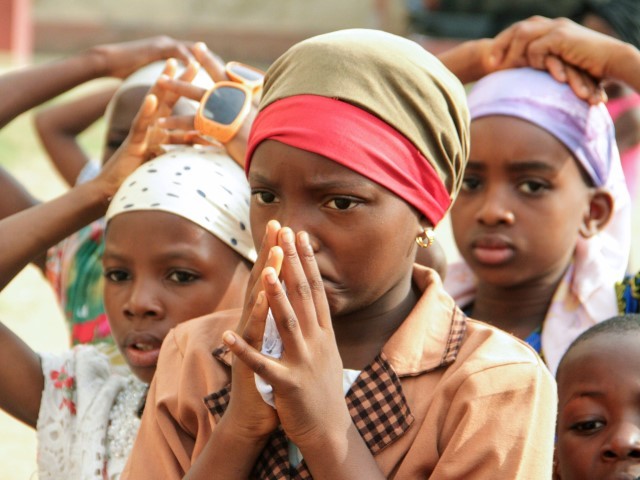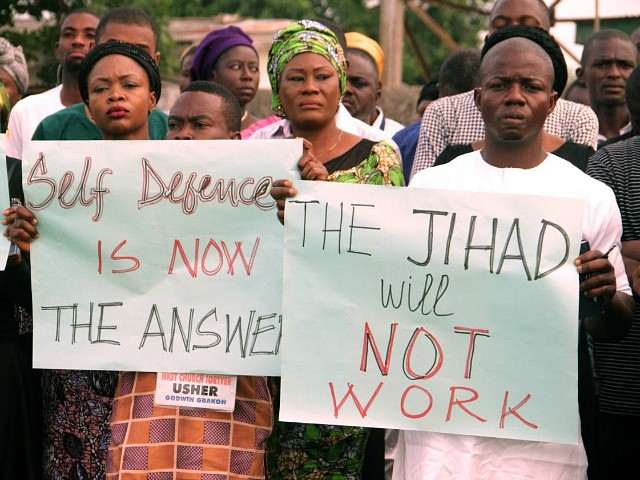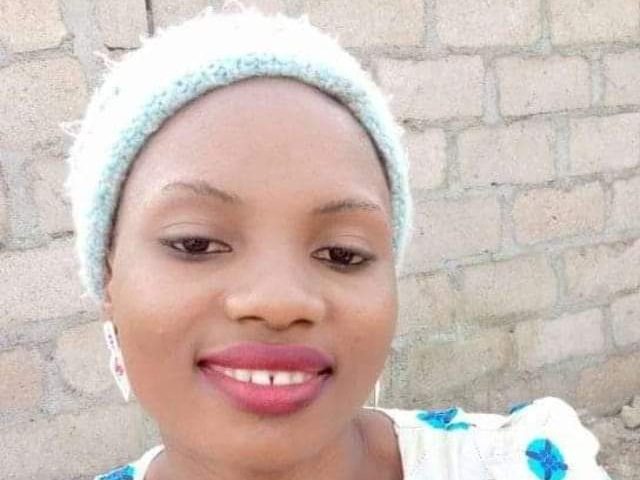A mob of Muslim students at a college in northern Nigeria beat a fellow student to death and burned her corpse on campus on Thursday after accusing the woman of “blasphemy” against Islam for allegedly suggesting her peers stop posting religious content on a student-run instant messaging group, the Nigerian online newspaper the Paradise News reported on Friday.
“Muslim students at Shehu Shagari College of Education accused a Hausa Christian, Deborah Yakubu, of blasphemy; they beat their colleague to death and burnt the corpse. Ms Yakubu reportedly protested against posting religious messages on the student Whatsapp platform. Her protest angered some Muslim students who mobilized and subsequently killed her,” the Paradise News reported on May 13.
Nigerian President Muhammadu Buhari, himself a practicing Muslim, issued a statement confirming Yakubu’s death on May 13 in which he simultaneously seemed to make excuses for her barbaric murder.
Buhari referred to the action by Yakubu that allegedly made her a target for her fatal beating on May 12 (namely urging her peers to refrain from posting religious content on an official student-run Whatsapp messaging group) as a “transgression” against Islam.
He additionally appeared to suggest that the acts of fatal violence perpetrated against Yakubu were warranted under Nigerian law, but merely lamented that the mob responsible for her death had taken the law into its own hands.

File/Children pray during as Christian community members take part in a protest against the killing of people by suspected herdsmen in Makurdi, north-central Nigeria, on April 29, 2018. (Getty)
“Muslims all over the world demand respect for the Holy Prophets, including Isah (Alaihissalaam, Jesus Christ) and Muhammad (SAW) [sic],” Buhari said in a statement issued by his spokesman, Mallam Garba Shehu.
“But where transgressions occur, as alleged to be the case in this instance, the law does not allow anyone to take matters into their hands,” he stated.
“Moreover, religious leaders preach that it is not for the believer to judge the actions of another person. The constituted authority must be allowed to deal with such matters when they arise,” the Nigerian president continued.
“No person has the right to take the law in his or her own hands in this country. Violence has and never will solve any problem,” Buhari added.
Where is the international outrage and condemnation? Why isn't Joe Biden holding a press conference to condemn it right this minute? https://t.co/d3AX86wU21
— Breitbart News (@BreitbartNews) August 1, 2021
Buhari’s statement offered perfunctory condolences to Yakubu’s family while additionally revealing that an unknown number of additional victims were injured to an undisclosed degree during the mob attack on Yakubu.
“The President extended the nation’s condolences to the family of the deceased student and wished all those injured a quick recovery,” the Nigerian newspaper Vanguard noted of Buhari’s May 13 press release.
Vigilante mob attacks against people accused of “blasphemy” against Islam occur sporadically in northern Nigeria. The region is majority Muslim and home to some states, such as Kano, that enforce Islamic law (sharia) alongside common law.
“Under a northern Nigeria version of sharia (Islamic law), blasphemy is a capital crime, though execution is rarely carried out. Under nation-wide, secular law, the penalty is two years imprisonment,” according to the Council on Foreign Relations (CFR).

Church members carry placards reading “self defence is now the answer” “the jihad will not work”, as they take part in a protest against the killing of people by suspected herdsmen in Makurdi, north-central Nigeria, on April 29, 2018. (EMMY IBU/AFP/Getty Images)
“Nigeria’s federal constitution explicitly guarantees absolute freedom of religion; yet, in a seeming contradiction, blasphemy … is a crime, though lesser than under sharia,” CFR noted in September 2020.
“The country [Nigeria]’s Criminal Code prohibits any act that publicly insults any religion and stipulates a prison sentence of up to two years, while there are Islamic laws against blasphemy by sharia courts in 12 northern states,” Al Jazeera observed on May 12.
A court in northern Nigeria’s Kano state sentenced an atheist man to 24 years in prison in April on the charge of “blasphemy” for a Facebook statement the man posted in April 2020 that the court deemed offensive to Islam.
While northern Nigeria is majority Muslim, the nation’s southern region is majority Christian. Nigeria’s estimated population of 215.6 million is split roughly 50-50 between Islam and Christianity. The nation’s current president, Buhari, is a Muslim from the Fulani ethnic tribe. Muslim Fulani cattle herders have terrorized Christian communities across Nigeria for years. Critics have accused Buhari of failing to properly curb targeted anti-Christian terrorism by Fulani tribes since he was elected president in May 2015.
International Christian Concern estimated in August 2020 that “between 50,000 and 70,000 Christians have been killed by radical Islamists” in Nigeria over the previous decade.

COMMENTS
Please let us know if you're having issues with commenting.